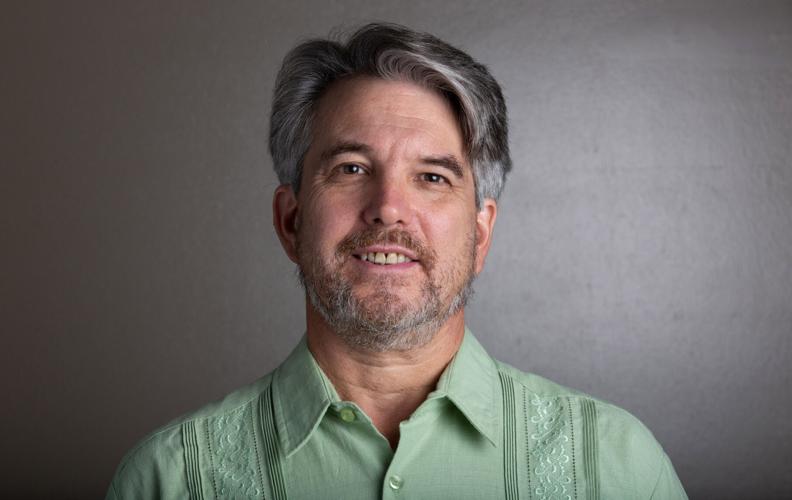The recommendation shocked the small world of Tucson City Court and presented a new challenge to the mayor and city council.
Maybe this time they will get it right.
The city commission tasked with reviewing judges’ performances every four years recommended unanimously Aug. 24 that the City Council not reappoint Presiding Magistrate Antonio Riojas as a judge.
Riojas is an institution at the court where the city’s DUIs, domestic violence cases and other misdemeanor crimes are handled. He’s been on the court for 28 years, 20 of them as presiding judge.
Nevertheless, the City Magistrates Merit Selection Commission voted 6-0 to recommend he not stay on. In a report to the council made last week, they said that Riojas’ decision to delay the appointment of attorneys for indigent defendants was illegal and made him unfit to continue as a judge.
“Judge Riojas’s decision to dispense with due process for the sake of the City’s administrative convenience is disqualifying for judicial office,” the commission concluded.
The commission, which has existed since 1978, is tasked with making recommendations to the council about judges: Mostly, whom to appoint to fill vacancies, and whether existing judges should be retained. It’s supposed to be made up of four attorneys appointed by the Pima County Bar Association and five non-attorney members, though it has seven members now.
They are intended to represent a cross-section of the community, with an emphasis on legal experience. Current members are chair James Rappaport, vice-chair Dina Dieglio, Mariam Ferguson, Suzette Jimenez, Zaira Livier, Dee-Dee Samet and D. Grady Scott.
This is the second time in 2 1/2 years that the commission has put the council in the awkward position of being asked not to reappoint a longtime judge. In March 2021, the commission recommended unanimously against retaining Magistrate Geraldine Hale, who had been on the court for more than 10 years.
That unanimous recommendation was ignored.
Lacking ‘temperament or legal acumen’
In February 2021, the commission issued a report on Hale’s reappointment that resulted from months of investigation and the input of more than 30 people. The investigation revealed a pattern of abusive and incompetent behavior on Hale’s part, and the report concluded, “she does not possess the temperament or legal acumen required of judicial officers.”
This was not what the council wanted to hear, especially about the only Native American woman judge in Tucson.
Then-council member Karin Uhlich suggested that the commission’s report showed it was not performing its role and needed guidance.
Council member Paul Cunningham referenced his grandmother who was a judge and implied sexism might be at play.
Mayor Regina Romero referenced “the lack of access and opportunity afforded to women, LGBTQ-plus communities, and people of color.”
“I think it was very unfortunate that there was such a blatant campaign against Judge Hale, but I still believe in her and her voice, and I believe she deserves to be reappointed to the bench,” she concluded.
None of the council members appeared to put any consideration into the many accusations of bullying, incompetence and volatility against Hale. They preferred to conclude that sexism and maybe racism could be the reason for the commission’s report and the “campaign” against her. They discounted the uncomfortable possibility the criticisms were valid.
And while bringing up sexism, they didn’t acknowledge the fact that the same commission recommended reappointing another female judge, Wendy Million, at the same meeting. Both Million and Hale were reappointed unanimously.
Issue over public defenders
Now comes Riojas, a longtime judge with even stronger institutional standing and a salary over $120,000. He is not accused of having a bad judicial temperament — in fact, he is widely appreciated. Instead, he is accused of committing a fundamental legal sin — robbing indigent defendants of their right to a defense in a timely manner.
Counsel is supposed to be appointed at the arraignment, when a defendant pleads guilty or not guilty. Instead, because of a shortage of public defenders, in December 2022, Riojas began delaying appointment of attorneys for out-of-custody defendants until the first pretrial hearing, at least 30 days later.
The problem with that, besides that it is illegal and violates defendants’ constitutional rights, is that defendants can talk with prosecutors and plead guilty before they even get to the pre-trial hearing and receive an attorney’s aid.
City public defender Mary Trejo wrote in an email Feb. 14 that her office had hired two new attorneys and could resume the normal appointments, but Riojas didn’t do so.
Local criminal defense attorney James Charnesky, a DUI specialist, emailed Riojas March 27 protesting the situation, saying “The right to counsel for a DUI defendant is absolute. It is not debatable.”
Riojas’ response was cool: “I appreciate your concerns, however the reality of our situation controls our current procedure.”
Fellow defense attorney Michael Bloom joined Charnesky and two others April 6 writing a letter to presiding Pima County Superior Court Judge Jefrey Bergin, who oversees Tucson city court, decrying the practice as illegal. It ended the next day.
“I was horrified that people were going to court, potentially having their cases resolved, without the benefit of counsel, without knowing the full consequences,” Bloom said last week. He said of DUI defendants, “Many people could plead guilty without having seen the police reports and without having seen their blood test results.”
In their report, the commission concluded, “It was clear from his interview that Judge Riojas takes his administrative obligations seriously, but it was equally clear that he places those obligations above his primary duty as a judicial officer to follow the law.”
Riojas defends decision
When I spoke with him Thursday, Riojas said adequate safeguards were in place to protect defendants, since judges question every defendant as to whether they are pleading guilty willingly, and defendants must sign a waiver of their rights to counsel.
After the public defender’s office was staffed up, Riojas said, he consulted with other judges and decided the process was working.
“Nobody was coerced into taking a plea,” Riojas said. “They were given a choice. There was no harm in waiting (to appoint an attorney). There were no adverse consequences.”
But I’m not sure we can know that without reviewing each plea agreement made during the period in question. And that’s not something I expect the mayor and City Council to pursue.
They have shown an unwillingness to accept bad news about judges they like and have appointed before. The big legal issues raised by the commission seem to disintegrate when forced into the political arena of the council chambers.
As to Riojas, I don’t know if he deserves to be reappointed or not. But for the community’s sake, the mayor and council ought to confront the issues raised.
Otherwise, why have a merit commission at all?
Get your morning recap of today's local news and read the full stories here: http://tucne.ws/morning







